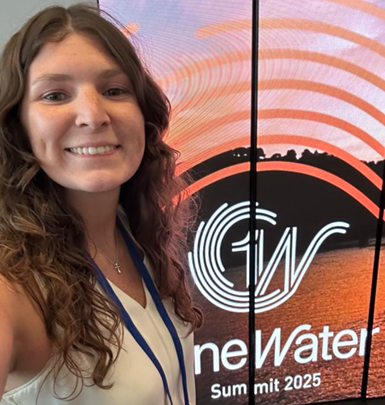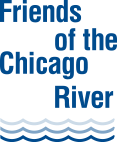Insights from the One Water Summit
 Friends' Watershed Policy Manager Tessa Murray arrives at the One Water Summit in Pittsburgh.
Friends' Watershed Policy Manager Tessa Murray arrives at the One Water Summit in Pittsburgh.
In July, Friends of the Chicago River joined hundreds of water leaders from across the country at the One Water Summit in Pittsburgh, an annual national gathering focused on advancing sustainable, equitable, and integrated approaches to water management. Hosted by the US Water Alliance, the summit brought together government agencies, utilities, nonprofit advocates, funders, and frontline community leaders for three days of conversation, collaboration, and learning.
The summit centered around the One Water approach, a holistic way of managing all forms of water (drinking water, wastewater, stormwater, groundwater, and natural water systems) as a single, interconnected resource. Rather than treating these systems separately, One Water emphasizes coordination, equity, and sustainability, encouraging agencies and communities to collaborate across silos to address water challenges in more integrated and resilient ways.
Representing Friends and the Greater Chicago Watershed Alliance, our Watershed Policy Manager, Tessa Murray, participated in panels, workshops, and site visits designed to share innovative solutions to the water challenges facing communities. Key topics included the need to bridge gaps between government and vulnerable communities, strategies for integrating water services under One Water models, and tools for demonstrating the wide-ranging benefits of green infrastructure such as the Natural Solutions Tool.
“This summit was an inspiring reminder that we’re not alone in this work,” said Murray. “Across the country, communities are facing the same urgent need to build climate resilience, protect public health, and invest in water infrastructure that serves everyone equitably. The lessons shared, from merging siloed departments to using new tools to quantify the value of nature-based solutions, will directly inform how we strengthen our regional advocacy through the Watershed Alliance.”
With federal funding uncertainty, many sessions also focused on what comes next. Murray and other attendees explored how communities can prepare for a more fragmented funding landscape, including by building partnerships across sectors and using resources more equitably. The summit also featured interactive sessions on authentic community engagement, equipping participants with practical methods for elevating local voices in water planning processes.
“There was a clear emphasis on the leadership of frontline communities,” said Murray. “That’s something we’re committed to centering through the Watershed Alliance as we continue to build coalitions and co-create solutions that reflect local knowledge and lived experience.”
The experience reinforced Friends’ commitment to regional collaboration and the power of peer learning. As the Watershed Alliance grows, these national conversations will continue to shape how we advocate for a more resilient, equitable, and healthy future for the Chicago-Calumet River system.

